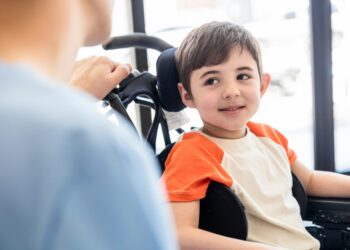Tsunami
28th June 2019
My first experience of disaster relief work came after the Boxing Day tsunami in 2004. This killed more than 230,000 people from 14 countries after a 9.1 magnitude earthquake struck off the northern tip of Sumatra in Indonesia. The tsunami had the energy of 23,000 Hiroshima type atom bombs, causing the largest magnitude earthquake in more than 40 years. Like many, I was compelled to help and use my skills to help the people (particulalrly the children) who were affected in the region.

At the time I was working at a large NHS trust and my first job was to get time off work to see if I could get out there to help. This was my first obstacle. I approached my clinical manager to ask if the hospital would support me in travelling out to help. The answer was a very clear no! If I wanted to help, I could do but I would have to take annual leave and arrange cover for my work. Undeterred by this inflexibility I spoke with my colleagues and arranged cover and applied for my leave. Two colleagues (Sam & Jo) decided that they wanted to join me in my quest. Fabulous! I thought. Next step was to get the equipment and medicines that we would need, and arrange flights. My good friend Cathy (who runs a little travel agency called Wetherby Travel helped me get some very cheap flights out to Thailand). Members of my local village (Bramham) were so moved that they organised a fund raising night to help cover the expenses that we might incurr. This was led by Keith Robinson and that night raised over £2,500. Next, I visited Boots in Leeds who supplied all the medical equipment and drugs that we might need. Before we knew it, we were on a flight to Thailand.
After arriving in Phuket we hired a Jeep and I remenber driving to a petrol station to fill up. At the petrol station there was a man on a motorbike with Swedish nummber plates. I got chatting to him and asked him where he was from and what he was doing in Thailand. He was from Sweden ( I kind of guessed this already) and had driven overland to come and help. He had no profession but just wanted to help in anyway that he could. This I have subsequently found is one of the most positive things that happen in a disaster. Good hearted people from all over the World come together to help. It’s genuinely heart warming, and actually, quite amazing!
The devastation was on such a large scale, whole families lost, so many children orphaned. I remember the wall of the missing – thousands upon thousand of pictures. The people of Thailand are a proud race and they felt uncomfortable with the outside World coming in to help them but for the first few weeks they did.



Most of our work centred upon the psychological support for the traumatised children. The government agencies and international charities were very quickly mobilised to help construct temporary villages for people to live in. We helped construct play areas and football pitches to keep the children occupied. What I didn’t know at the time was that the experience would be invaluable and laid the foundations for our future projects including the Children’s e-Hospital and our charity work in Kos with the Syrian refugees which led to the co-ordination of over 100 volunteers over a 12 month period.
Posted in: Diary of a Children's Doctor by Dr Tim Ubhi



Comments